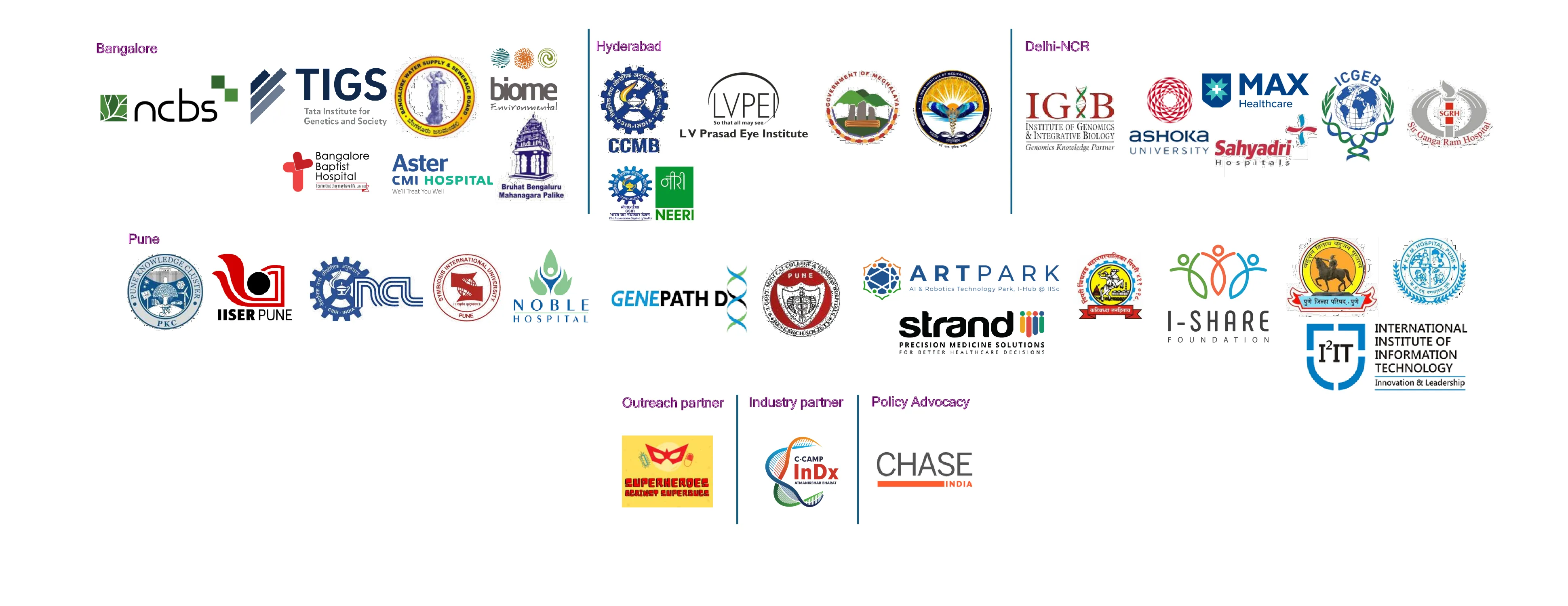The Alliance for Pathogen Surveillance Innovations (APSI-India) was set up in July 2021 to strengthen India’s public health surveillance capabilities using advanced pathogen monitoring tools. We are a pan-India consortium generously supported by The Rockefeller Foundation , New York, bringing together four highly populated cities in the country - Bengaluru, Delhi-NCR, Hyderabad and Pune.
The first phase of our work focussed on supplementing SARS-CoV-2 surveillance by INSACOG via clinical Covid testing and sequencing samples from patients across the country. APSI’s efforts have led to the incorporation of a large number of viral genomes from India into the global repository GISAID. Over 75% of sequences submitted from the consortium cities bear the tag of the RF program.
In addition to clinical surveillance, we also set up a robust system of detection of SARS-CoV-2 and identification of its variants in wastewater, including sewage treatment plants (STPs), open drains and water bodies. We have developed standardized methodologies and SOPs for wastewater surveillance (WWS) allowing for data reproducibility across the consortium.
WWS is an important tool to analyze the health status of a community, specifically by tracking disease associated agents. Many disease-causing pathogens find their way into wastewater through the feces excreted by patients. Sewage, which is the centralized collection point, can serve as an unbiased sampling site to capture the footprints of these pathogens – as exemplified by the detection of SARS-CoV-2 from wastewater in this pandemic. SARS-CoV-2 is shed in the stools of COVID-19 patients regardless of whether the patient suffers from gastrointestinal disturbance or not. Symptomatic as well as asymptomatic COVID-19 affected individuals shed the virus and traces of the viral genome can be detected for several days even after the patient tests negative in conventional nasopharyngeal tests. This provides an advantage in terms of accurate and early (upto two weeks in advance of clinical symptoms) detection of actual viral burden in a community or city, even if patients do not appear for clinical testing or in hospitals.
The flowchart below outlines the WWS process followed by APSI
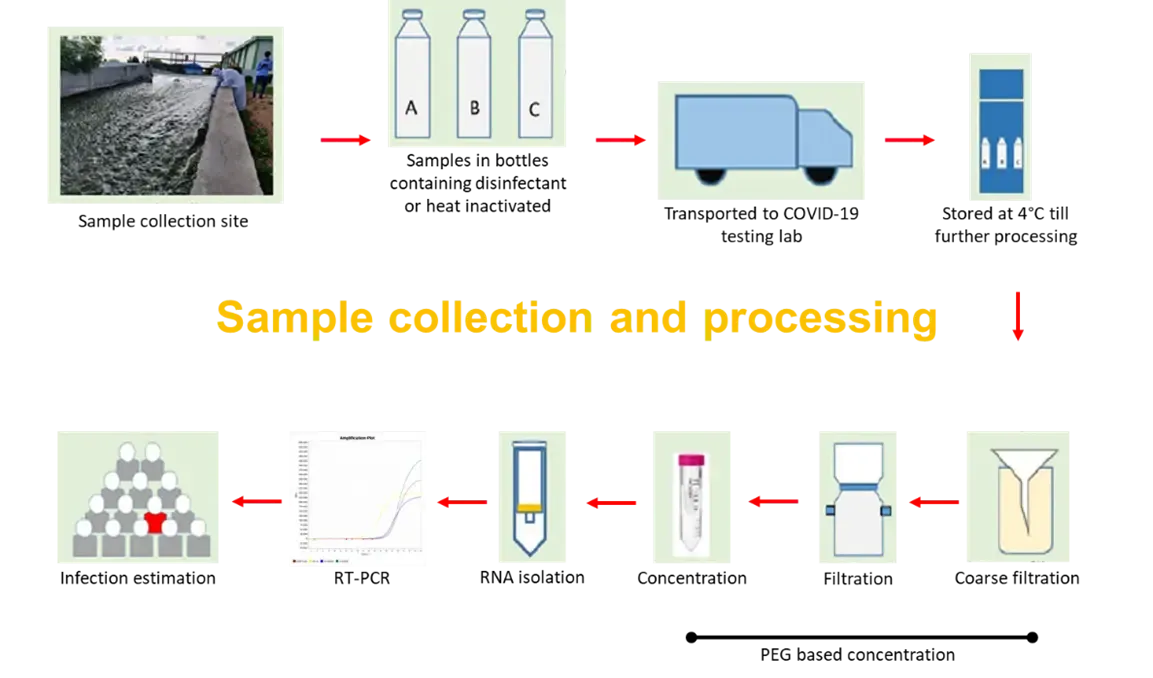
Adapted from Manupati et al., 2021, Sci Total Environ
Over the past few years, the APSI team has developed a model for WWS which has been crucial for monitoring the extent and spread of COVID-19 infections in cities such as Bengaluru and Pune at a much lower cost than mass testing.
Our teams collect wastewater samples from multiple locations identified across the city at a frequency of about once a week to gather insights into the pathogen load in these areas. Tracking the wastewater data alongside reported clinical cases will help provide granular geographic and temporal patterns of infection spread.
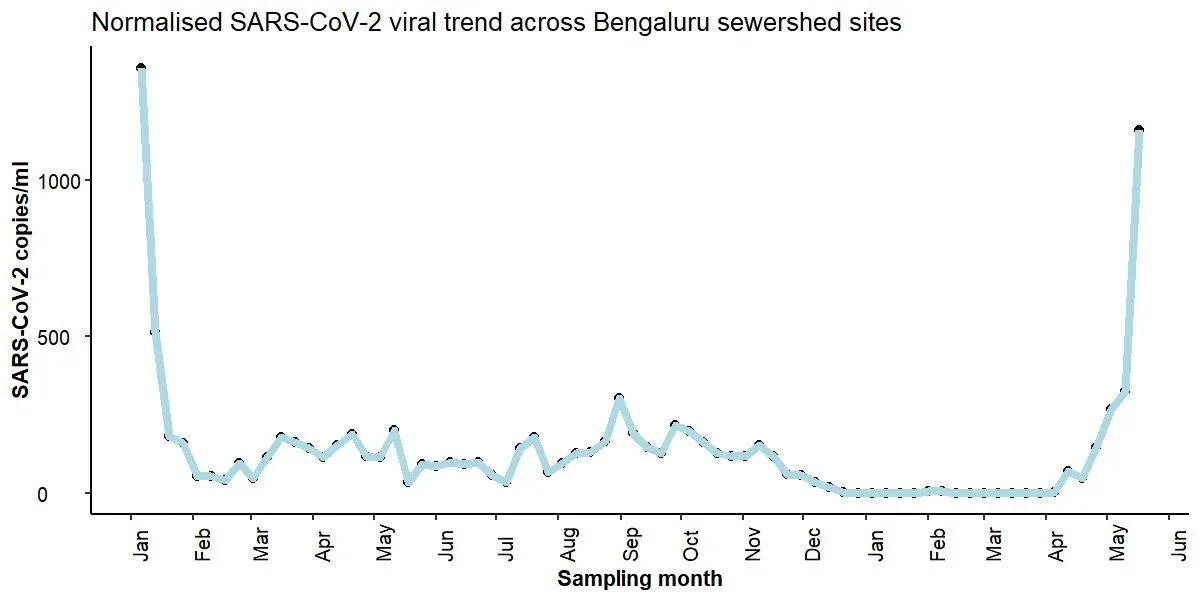
SARS-CoV-2 Viral Trends from January 2024 - May 2025
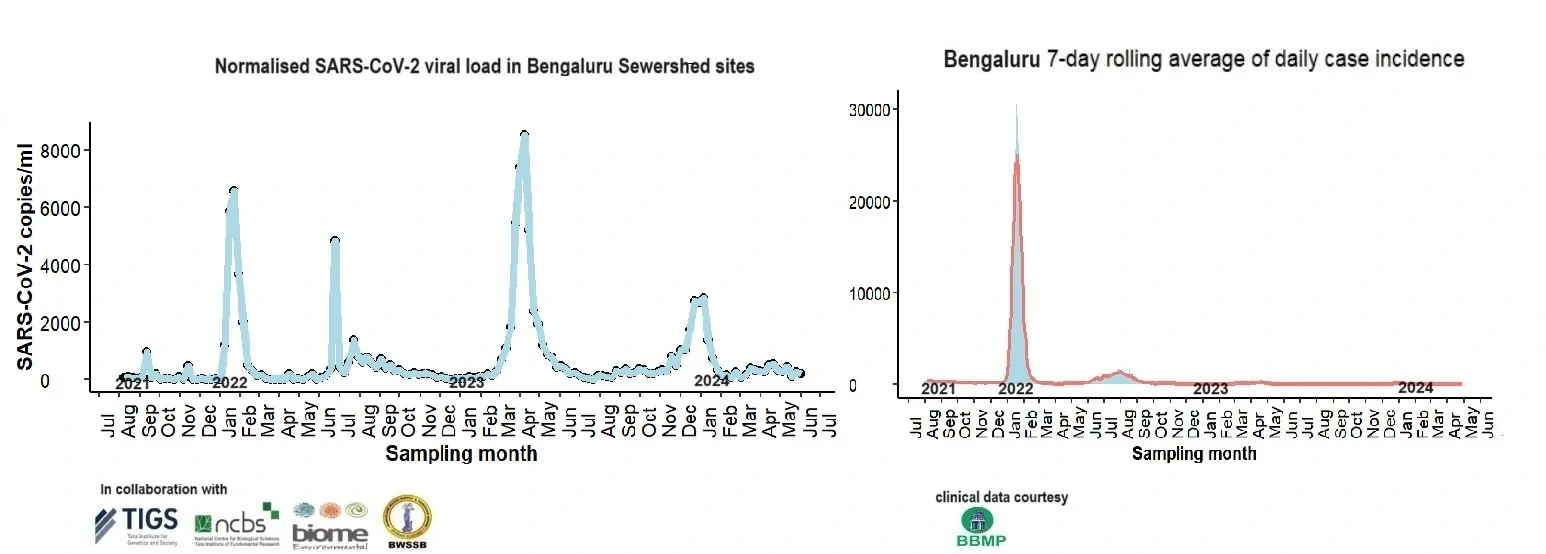
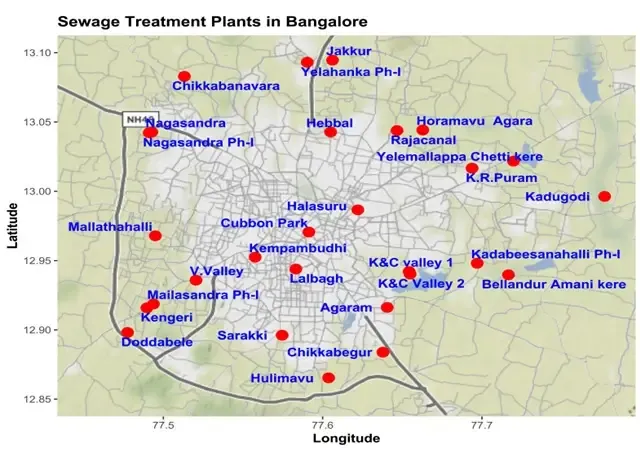
#BangaloreEnvtSurvCOVIDUpdates
— Tata Institute for Genetics and Society, India (@TIGS_India) Apr 15, 2024
The city-wide #Bangalore wastewater 𝗽𝗼𝘀𝗶𝘁𝗶𝘃𝗶𝘁𝘆 𝗿𝗮𝘁𝗲 for #SARSCoV2 remained ~100% in the past two weeks, 1st - 12th April 2024 across 26STPs.
😷 pic.twitter.com/XiQ6bfKkPm
These data are shared on a weekly basis with the Bengaluru municipal corporation, the Bruhat Bengaluru Mahanagara Palike (BBMP) and shared on social media to provide warning of disease spread to relevant authorities.
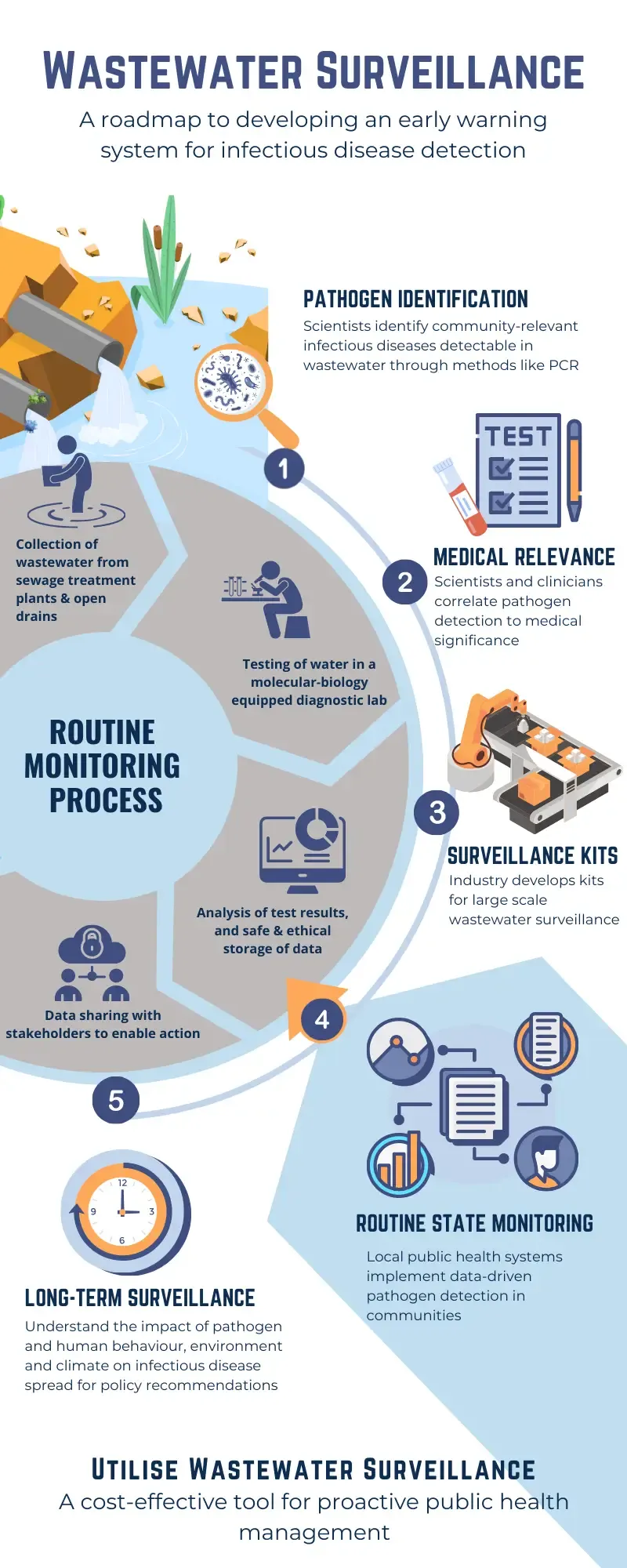
Moving beyond SARS-CoV-2 detection, APSI is currently leveraging its experience to develop advanced surveillance platforms for monitoring other diseases such as dengue, Influenza and respiratory syncytial viruses by incorporating wastewater-based prevalence detection, genome sequencing, bioinformatics, data analytics, and information dissemination to public and government stakeholders. APSI is also focused on the crisis of antimicrobial resistance (AMR) via tracking the emergence of pathogens resistant to antibiotics and other drugs. Visit our publications page to learn about research conducted in these areas.
The consortium has scientific and clinical collaborative networks with academic institutions, laboratories, municipal administrations as well as hospitals to enable efficient integration of data from environmental surveillance with clinical correlates across the 4 core cities. These collaborations serve as nodes for expanding disease surveillance networks to other satellite centres such as Vijaywada, Shillong and Sonipat. We are now building locally tailored networks at other locations across India, taking crucial steps to strengthen the country's public health surveillance network and mitigate future pandemic risks.
For wastewater surveillance to be adopted into the routine monitoring systems of public health programs, another critical element is the development of reliable and cost effective kits, specifically for environmental surveillance. The APSI team is actively involved in handholding the technology as well as in product development stages with industry and clinical partners for development of such indigenous and low-cost pathogen detection kits.
Finally, wastewater surveillance needs to be seen from the lens of long-term surveillance where local administrations implement data-driven surveillance which in turn helps in understanding pathogen evolution and behaviour over time and the impact of anthropomorphic measures for implementation at the policy level. Through our various outreach events we raise awareness of the key role of wastewater surveillance in detection of pathogens of public health concern among key stakeholders of the health care sector including the public, medical/health care administrators and policy makers. The infographic on the left visualizes the routine monitoring processes that need to be in place for such a proactive system to be in place. In the future, these powerful tools will be invaluable for localized disease management and prevention of epidemics and pandemics.
Infographic Design: Superheroes against Superbugs and Rupsy Khurana
With APSI-India at the forefront of pathogen surveillance innovations, we are marching towards a healthier and safer future for all. Connect with our cluster team to join us in preventing the outbreak of infectious diseases. Together, we can make a significant difference in safeguarding public health!
